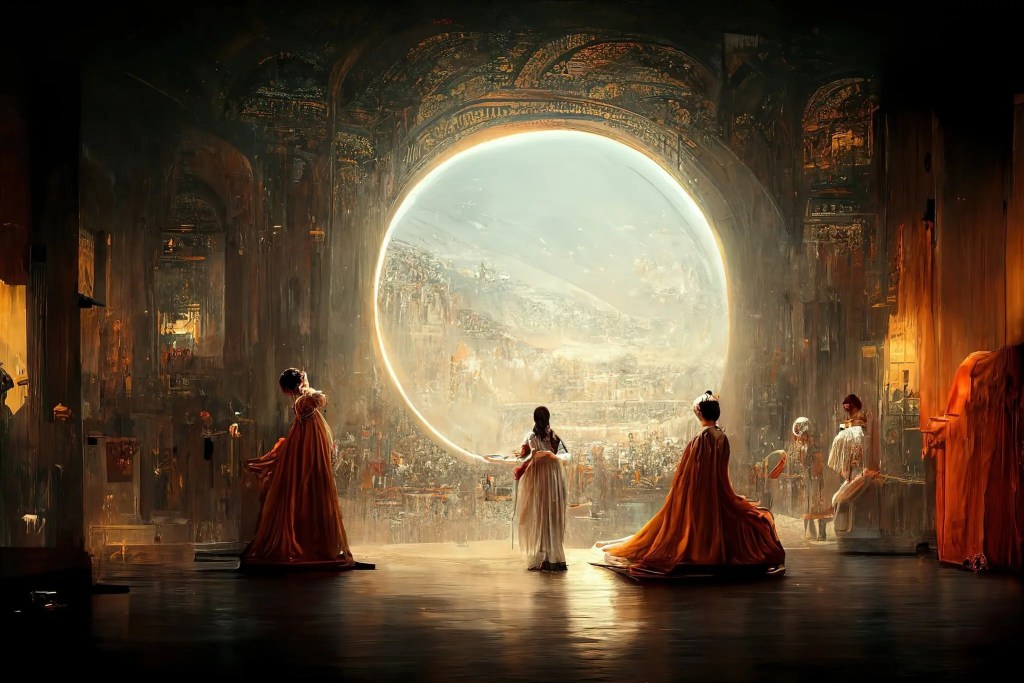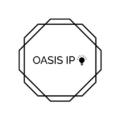Originally Posted on September 7, 2023
The two-dimensional artwork titled “Théâtre d’Opéra Spatial” which was the first AI-generated image to win the 2022 Colorado State Fair’s annual fine art competition, was created by Mr. Jason M. Allen with the use of Midjourney, a text-to-picture AI program. The U.S. Copyright Review Board has affirmed the refusal to register a copyright claim in the artwork.

On September 21, 2022, Mr. Allen applied to the U.S. Copyright Office to register a copyright claim for the award-winning artwork. Although Mr. Allen did not disclose that the work (or parts of it) were AI-generated, the office knew that Midjourney had been used in the art’s creation since the image had gained attention during the fine art competition.
The copyright examiner requested Mr. Allen to furnish additional information about the use of Midjourney in creating the art. Mr. Allen responded by explaining the process of creating his work, which included text revisions and text prompts at least 624 times to arrive at the initial version, which was produced with the use of Midjourney, and then improved using Adobe Photoshop and Gigapixel AI.
As a result of the disclosure, Mr. Allen was requested to exclude the features of the artwork generated by AI from the copyright claim. Mr. Allen declined the request, and the copyright office refused to register the claim because the deposit for the work did not fix only Mr. Allen’s alleged authorship but included inextricably merged inseparable contributions. His first request to reconsider the decision was also denied because the AI-generated features must be excluded as non-human authorship.
This decision comes following his second request to the Copyright Office to reconsider the refusal to register his copyright claim.
Mr. Allen argued that:
- In finding that the image generated by Midjourney lacks human authorship, the office ignored the essential element of human creativity required to create a work using the Midjourney program.
- The fair use doctrine would allow for registration of the work because it allows for transformative uses of copyrighted material.
- By refusing to register Midjourney-generated content and other generative AI platforms, the Office is placing a value judgment on the utility of various tools and that denial of copyright protection for the output of such tools would result in a void of ownership.
- Requiring creators to list each tool of the proportion of the work created with AI tools would have a burdensome effect if enforced uniformly.
The law:
The US Copyright Act protects original works of authorship fixed in any tangible medium of expression (17 U.S.C §102(a)). Courts have interpreted the statutory phrase “works of authorship’’ to require human creation of the work.
What does the U.S. Copyright Office consider when dealing with AI-generated content:
Authorship:
The office must determine whether a human user can be considered the “creator” of AI-generated content. Because copyright protection is only accorded to works of human authorship, when a work contains AI-generated content, the US Copyright Office first determines the presence of human creation in the work to determine authorship.
The Office has to establish whether the work is one of human authorship, with the computer merely being an assisting instrument, or whether the “traditional elements” of authorship in the work were actually conceived and executed not by man but a machine. The term traditional elements relates to the expressive elements of the work i.e., the literary, artistic, or musical expression or elements of selection, arrangement e.t.c (bearing in mind that copyright only protects the expression of the work and not the idea behind the work.
The Office further establishes whether the AI contributions are the result of mechanical reproduction or instead of an author’s own original mental conception to which the author gave visible form.
Determining human authorship:
If all of a work’s “traditional elements of authorship” were produced by a machine, the work lacks human authorship, and the Office will not register it.
If, however, a work containing AI-generated material also contains “sufficient” human authorship to support a copyright claim, then the Office will register the human’s contributions.
In cases where the AI-generated content contains sufficient human authorship material, the applicant must disclose the AI-generated content that is more than de minimis(more than minor) and exclude such material from their claim in the limitation of claim section of the application.
The de minimis test:
The de minimis test for human authorship was established in Feist Vs Rural Telephone where the Court noted that “copyright protects only those constituent elements of a work that possess more than a de minimis quantum of creativity.” To this end, works with no expression or only a de minimis (minor/not substantial) amount of original expression cannot be registered by the US Copyright Office (Section 313.4B).
Disclosure requirement:
The requirement for disclosure is not alien to Intellectual Property rights as it is a major requirement for patent applicants. Although it has been crucial to patent applications, with the growth of applications for copyright claims relating to AI-generated content, applicants are required to disclose the use of AI in the creation of their works. The disclosure enables the examiner to establish whether the AI-generated content is more than de minimis and the extent of the work that should be disclaimed from the copyright claim.
Regarding the requirement for AI-generated material to be excluded from the copyright claim, the Board observed that this is not a value judgment but rather a recognition of the fact that human authorship is a bedrock requirement for copyright.
In this case, the Review Board concluded that the work contains an amount of AI-generated material that is more than de minimis and thus must be disclaimed. The Board noted that “the Midjourney image, which remains in substantial form in the final work, is not the product of human authorship.”
Courtesy of the U.S. Copyright Review Board
The Board further noted that “when an AI technology receives solely a prompt from a human and produces complex written, visual, or musical works in response, the traditional elements of authorship’ are determined and executed by the technology – not the human user.” Because the authorship in the Midjourney image is more than de minimis, the Board concluded that Mr. Allen must exclude it from his claim.
The Creativity element:
The Board acknowledged that the process of prompting can involve creativity, but that does not mean that providing prompts to Midjourney actually forms the generated images. The key to copyright protection is human involvement in and ultimate creative control over the work at issue.
Although the Board agreed that human-authored modifications of AI-generated material may be protected by copyright, It was further emphasized that to be copyrightable, a work must qualify as an original work of authorship, which excludes works produced by non-humans.
Why the Award-winning artwork was denied copyright protection:
In this case, the disclosure of AI-generated content in the artwork was not disclosed at the initial stage of the application. Following the request to disclose the Midjourney-generated elements in the work, the Applicant, Mr. Allen explained the creation process but was unwilling to disclaim the AI-generated content from his claim. The Office found that the work contains more than de minimis amount of AI-generated content, which must be disclaimed in an application for registration. Because Mr. Allen refused to disclaim the material produced by AI, the work cannot be registered as submitted.
It is important to note that the Board in this case agreed that human-authored modifications of AI-generated material may be protected by copyright. The key obligation for applicants is to disclose the involvement of AI in creation of their work and if necessary, disclaim the AI-generated content from their copyright claim.
Read the full decision here


